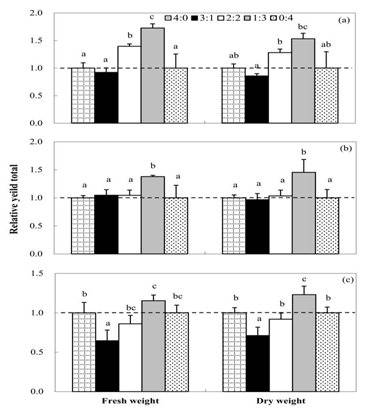Name:
Tell:
Email:
Organization:
Facilitation and Competition Shifts Clarified for a Proactive Restoration Approach in Eutrophication
2013-09-17
Submerged macrophytes are key elements for shallow lakes because of their important roles in maintaining clear water by changing the nutrient retention and cycling in the food web. However, a decrease in species diversity and disappearance of submerged macrophytes were noted in most of lakes in the world as aresult of severe eutrophication. Foundation species are crucial for restoration because they canfacilitate the colonization of other species by maintaining or providing key habitat or promoting community-level recovery from disturbance. Therefore, the requirements for successfully reestablishing foundation speciesin severe eutrophic conditions are becoming very important.
The stress gradient hypothesis (SGH) states that environmental stress modulates species interactions, causing shifts between competition and facilitation with increasing stress. To date, it is still unknown whether interactions among foundation species of submerged macrophytes support the SGH or not in eutrophic conditions.
In order to clarify interactions among foundation species and relationships between interactions and tissue nutrients in eutrophic condition, HAO Beibei, under the supervision of Prof. LIU Guihua and associate Prof. XING Wei from Wuhan Botanical Garden, studied facilitation and competition between Myriophyllum spicatum and Potamogeton maackianus at Kunming City, Yunnan Province (N: 24° 44’, E: 102° 35’).
Results showed a shift of interactions between foundation species M. spicatum and P. maackianus from facilitation to neutral to competition with the increase of eutrophication, and species proportion of 1 M. spicatum: 3 P. maackianus had highest biomass and maximal facilitation. Moreover, below ground of P. maackianus had relatively high biomass because of reproductive strategy. Furthermore, M. spicatum and P. maackianus showed relatively high stoichiometric hemostasis. Based on their results, facilitation may enhance the colonization of aquatic plants in freshwater ecosystems threatened by eutrophication, and species proportion of 1 M. spicatum: 3 P. maackianus can be used in restoration of eutrophic lake ecosystems for improving the success of submerged macrophytes restoration.
This research entitled “Facilitation and competition among foundation species of submerged macrophytes threatened by severe eutrophication and implications for restoration” was published in Ecological Engineering (2013, 60: 76-80).This study was supported by National Natural Science Foundation of China (31000163), the National S & T Major Project (2012ZX07103003) and Youth Innovation Promotion Association of CAS.

Relative yield totals of M.spicatum and P. maackianusin replacement series experiment (M: P). (a) Medium eutrophication, (b) heavyeutrophication, and (c) hyper eutrophication. (Image by WBG)